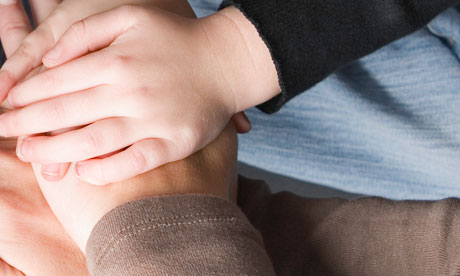
Adoption: blanket bans on sex offenders are open to legal challenge, the LSE report argues. Photograph: Lisa Spindler/Getty Images
The government could face legal action if it continues to ban sex offenders from working with children, according to research published today.
A report by a family law expert argues that some sex offenders should be allowed to adopt or foster children, and claims that the current blanket ban is discriminatory.
"Sex offenders shouldn't all be tarred with the same brush," said Helen Reece at the London School of Economics, who wrote the report. "People need to be carefully screened for adoption and fostering, but each case should be taken on its merits.
"There shouldn't be blanket rules. What somebody has done before is not necessarily what he or she will do again. When someone has served a sentence, as far as you can, you should treat them the same as anyone else."
The report points to legal challenges that have overturned other blanket bans on adoption, including a 2008 case in which the House of Lords said rules in Northern Ireland preventing cohabiting couples from adopting children were discriminatory.
"If we believe that blanket bans are an effective and legitimate means to protect children then we should no more allow cohabiting couples to adopt or foster than convicted sex offenders," said Reece.
But claims in the report that cohabiting couples can present more of a risk to children than sex offenders are likely to provoke anger among groups concerned with child protection.
Responding to the report, the government said child and adult safety was its priority. "It is vital that children and vulnerable adults are protected," a Home Office spokesperson said. "We are committed to ensuring that decisions on who is suitable to work with the vulnerable are proportionate and meet the test of common sense."
Sex offenders have been prohibited from working with, and adopting, children since 2006, when measures were put in place to prevent a recurrence of the murder of schoolgirls Jessica Chapman and Holly Wells by school caretaker Ian Huntley in Soham.
The "vetting and barring" scheme introduced by the 2006 law has divided opinion, and was halted by the home secretary, Theresa May, in June after criticism that it was "draconian" and would deter volunteers .
This month a group of nurses who had been automatically placed on the barred list after they committed offences at work successfully challenged the scheme in the high court, claiming their human rights had been violated.
"The vetting and barring scheme contradicts human rights legislation and is therefore challengeable," said Reece. "I agree with this government that it should be brought back to commonsense levels."